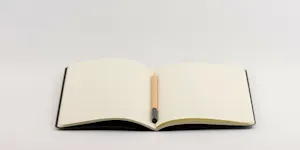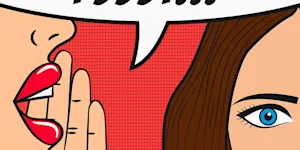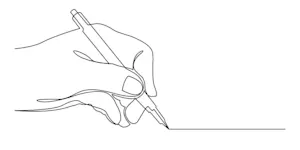What Makes This Word Tick
"Euphony" is like a cozy blanket for your ears; it's all about pleasing sounds that make us sigh with contentment. This word captures the essence of harmony and melody, bringing to mind symphonies, sonnets, and sweet compliments that roll off the tongue with ease.
If Euphony Were a Person…
If "euphony" were a person, it would be that friend who always knows how to smooth over a tense moment with the right words. They'd have a voice like a lullaby, an elegant style, and a knack for creating peace and comfort wherever they go.
How This Word Has Changed Over Time
Originally from the Greek "euphōnos," meaning "sweet-voiced" or "pleasant-sounding," euphony hasn't wandered far from its roots. It has maintained its charm throughout the ages, consistently describing the delight we find in melodious combinations of sounds.
Old Sayings and Proverbs That Use Euphony
While there aren't ancient sayings that explicitly mention "euphony," the idea is often tucked away in proverbs like "Music soothes the savage beast." The concept of pleasing sound calming the spirit is as old as time itself.
Surprising Facts About Euphony
Despite its musical nature, euphony isn't just for composers or poetry lovers. It's woven into the fabric of our everyday conversations whenever we use words or phrases that are easy on the ears, like "cellar door"—considered by some to be one of the most euphonious phrases in English.
Out and About With This Word
Imagine wandering through a bustling farmers market where the chatter blends seamlessly into a harmonious hum—that's euphony in action. Or picture a tranquil garden where the rustling leaves and chirping birds create a natural symphony.
Pop Culture Moments Where Euphony Was Used
While not frequently name-dropped in pop culture, euphony is the unsung hero of every catchy jingle and memorable movie score. Think of how John Williams' scores for films like "Star Wars" and "Harry Potter" make us feel; they're pure euphony at work.
The Word in Literature
Euphony is the bedrock of poetry, used by literary greats from Shakespeare to Keats. Poets employ it to create rhythm and mood, allowing readers to delight in the musicality of language itself. Ever read a line of poetry that seems to sing? That's euphony winking at you.
Moments in History with Euphony
The speeches of Martin Luther King Jr., particularly his "I Have a Dream" speech, exemplify euphony with their rhythmic and resonant delivery, capturing the essence of harmony in both message and melody—an audible embodiment of unity and peace.
This Word Around the World
Languages worldwide embody euphony in unique ways—consider the cadence of Italian, known for its musicality, or the French language, often praised for its lyrical flow. In each culture, euphony helps shape the perception of beauty in spoken and written language.
Where Does It Come From?
Tracing back to the Greek "euphōnia," euphony combines "eu," meaning good, and "phonē," meaning sound. This charming word has seen little evolution, as the idea of pleasant sound has been cherished across centuries and civilizations.
How People Misuse This Word
People sometimes conflate "euphony" with "symphony," assuming they both mean the same thing. While a symphony is a type of musical composition, euphony refers to the pleasing quality of sounds in general, musical or otherwise.
Words It’s Often Confused With
Symphony: Although both deal with music, symphony is a complex orchestral composition, while euphony is the general harmony of sounds.
Cacophony: Often mistaken as its opposite, cacophony describes harsh, discordant sounds.
Melody: Melody involves a sequence of notes, whereas euphony is about the pleasant arrangement of sounds.
Additional Synonyms and Antonyms
Synonyms: Harmony, mellifluousness, melodiousness
Antonyms: Cacophony, discordance, dissonance
Want to Try It Out in a Sentence?
The euphony of the gentle rain and rustling leaves provided a serene backdrop to their afternoon tea.
















